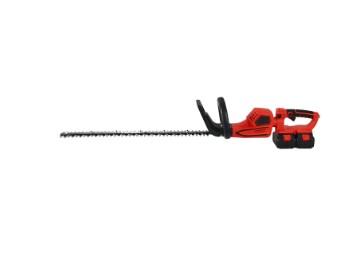In the quest for sustainable development, the role of lithium electric tools in the construction and manufacturing industries cannot be overstated. These tools, powered by lithium-ion batteries, have become increasingly popular due to their efficiency, portability, and performance. However, the question of their environmental performance remains a topic of interest and debate. This article aims to delve into the eco-friendliness of lithium electric tools, exploring their advantages and potential drawbacks in the context of environmental sustainability.
One of the primary benefits of lithium electric tools is their energy efficiency. Compared to traditional power tools that rely on fossil fuels or electricity from the grid, lithium electric tools consume less energy per unit of work. This reduction in energy consumption translates to lower greenhouse gas emissions, which is a significant factor in mitigating climate change. Moreover, the energy used to charge these tools can be sourced from renewable energy sources, further enhancing their environmental credentials.
Another aspect of lithium electric tools that contribute to their eco-friendliness is their longevity. Lithium-ion batteries, which power these tools, are known for their long lifespan and ability to retain charge over time. This means that users can enjoy consistent performance for extended periods without the need for frequent replacements. In contrast, traditional power tools may require more frequent maintenance and replacement, leading to increased waste and resource consumption.
The portability of lithium electric tools also plays a role in their environmental performance. Since these tools are lightweight and easy to transport, they reduce the need for heavy machinery and vehicles to move equipment around job sites. This reduction in transportation-related emissions and fuel consumption is another way in which lithium electric tools contribute to a cleaner environment.
However, it is important to acknowledge that lithium electric tools are not without their environmental challenges. The production of lithium-ion batteries involves the mining of lithium, a process that can have significant environmental impacts if not managed responsibly. The extraction of lithium can lead to habitat destruction, water pollution, and the depletion of non-renewable resources. Therefore, manufacturers and consumers alike must advocate for and support sustainable mining practices and responsible sourcing of materials.
Additionally, the disposal and recycling of lithium electric tools and their batteries present another environmental concern. While lithium-ion batteries are more environmentally friendly than their predecessors, they still contain potentially harmful materials that require proper disposal and recycling. Encouraging manufacturers to develop and implement effective recycling programs, as well as educating consumers on the importance of responsible disposal, is essential to minimize the environmental impact of these tools at the end of their life cycle.
In conclusion, lithium electric tools offer a range of environmental benefits, including energy efficiency, longevity, and reduced transportation-related emissions. However, it is essential to address the challenges associated with the production, disposal, and recycling of these tools to ensure their overall eco-friendliness. By promoting sustainable practices throughout the life cycle of lithium electric tools, we can harness their potential to contribute to a greener and more sustainable future for the power tools industry.
